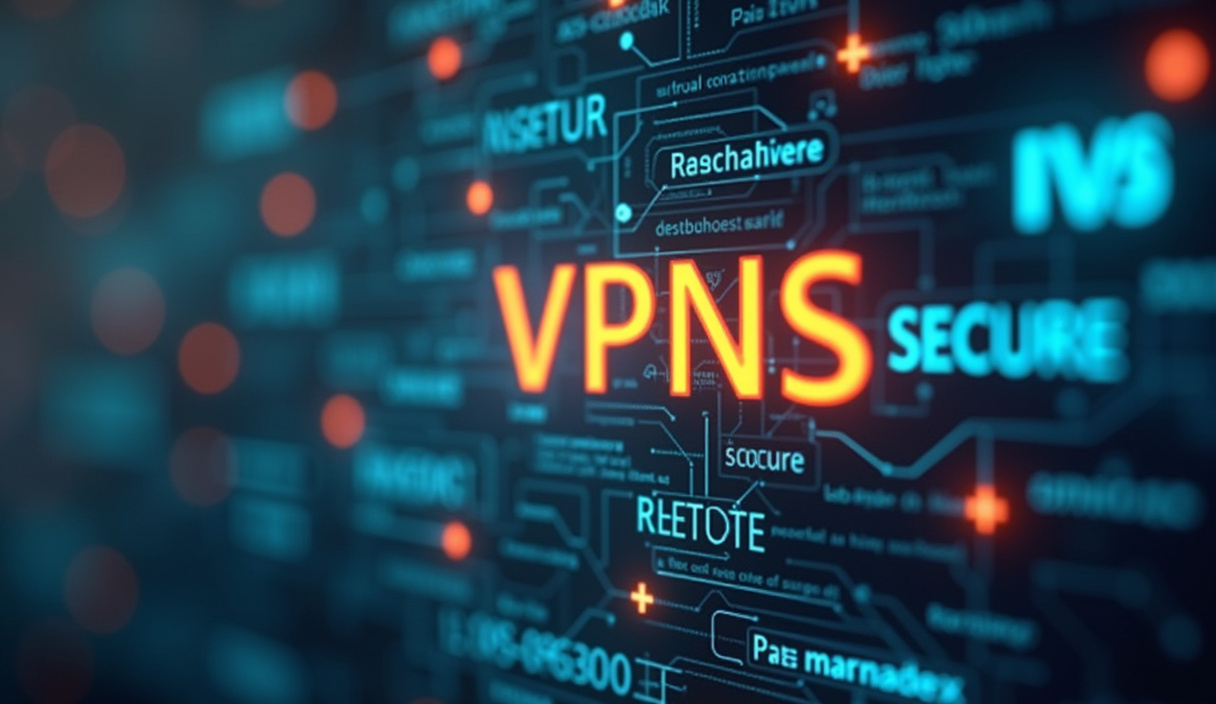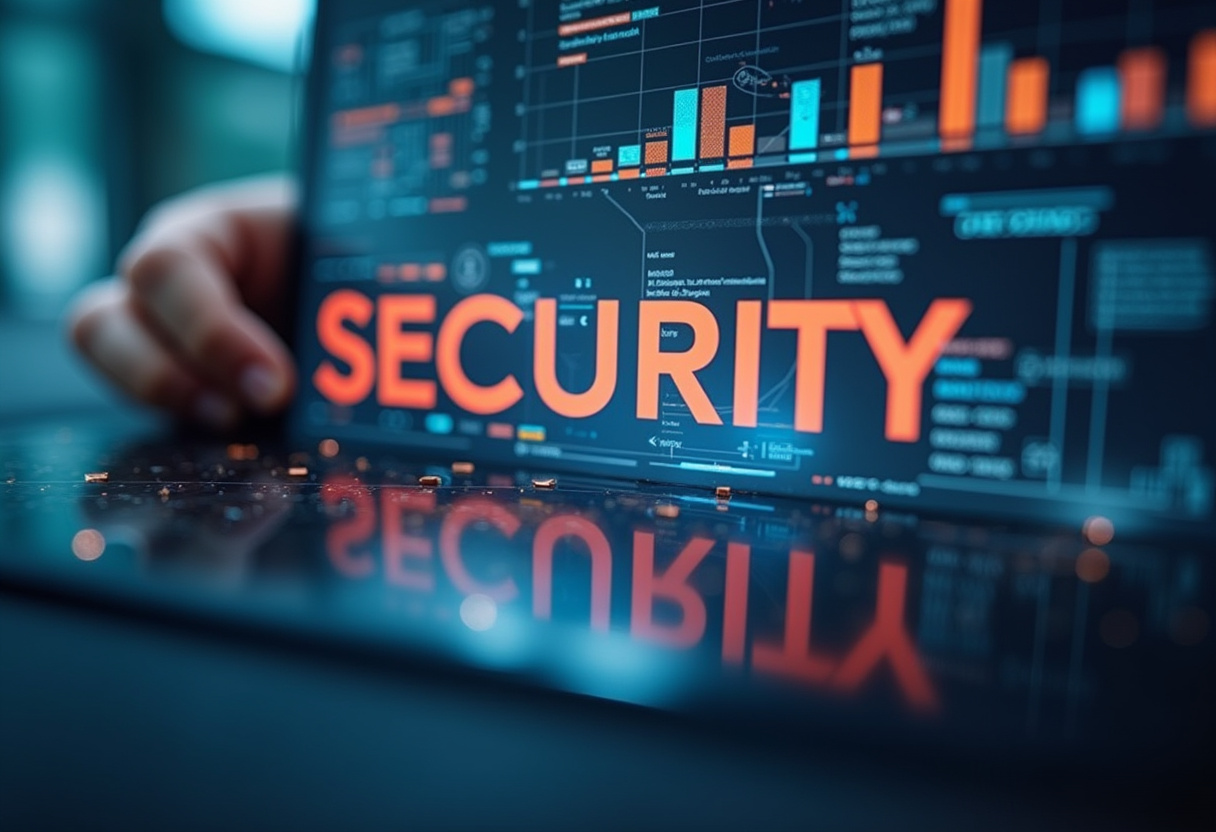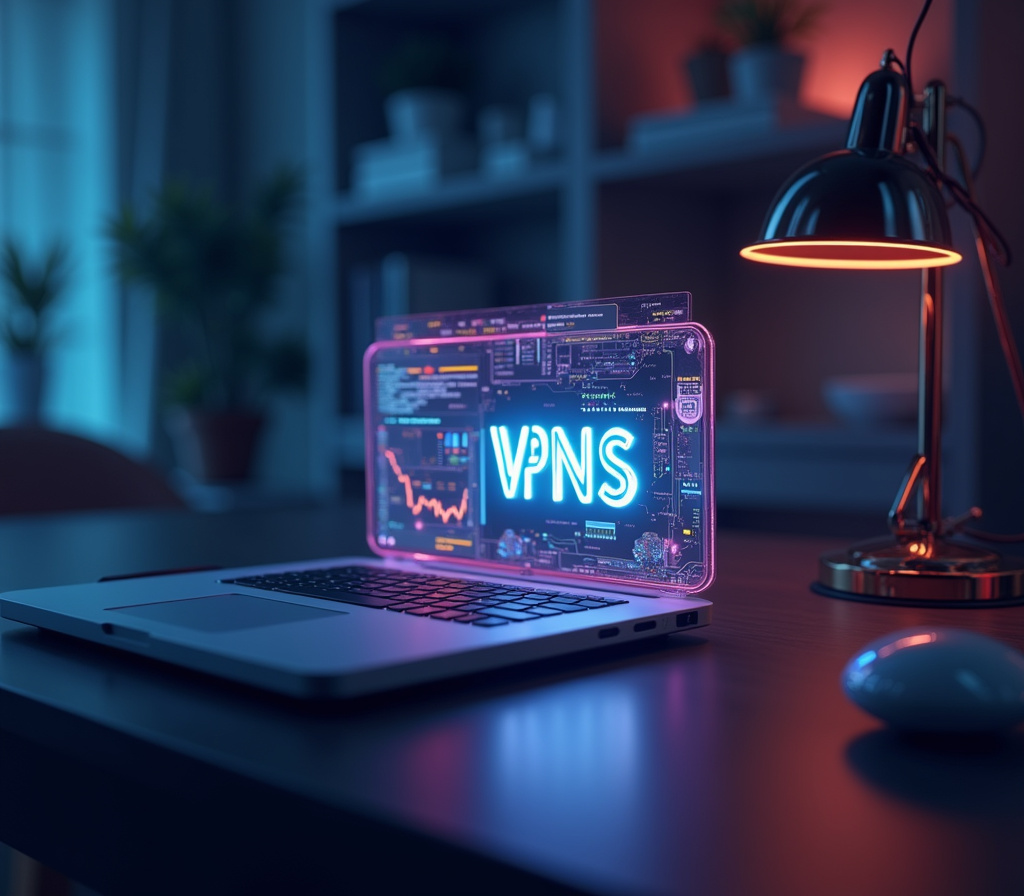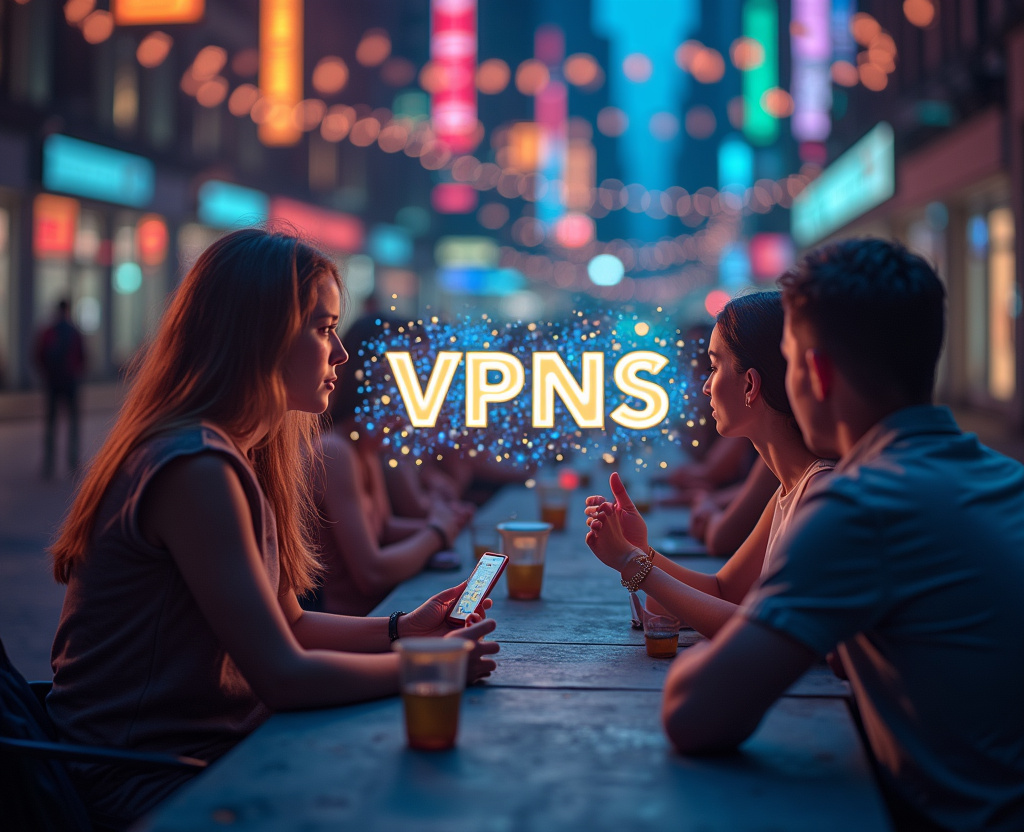VPNs for Remote Creative Teams: Protecting Collaborative Projects

Table of Contents
VPNs for Remote Creative Teams: Protecting Collaborative Projects
In today's interconnected world, the creative industry has embraced remote work as a cornerstone of its operations. Creative teams, often spread across cities, countries, or even continents, are increasingly reliant on digital collaboration to bring their innovative ideas to life. However, this shift towards remote workflows introduces a unique set of security considerations.
The need to safeguard sensitive project data, guarantee data integrity, ensure secure communication, and cultivate a culture of innovation becomes paramount. A Virtual Private Network (VPN) offers a critical layer of security for these remote creative teams, enabling them to collaborate efficiently while protecting their valuable assets in a secure digital environment. This article delves into the vital role of VPNs in securing collaborative projects for remote creative teams, focusing on key aspects: creative team VPN, project collaboration security, communication protection, data integrity, and VPN for teams.
We'll examine the specific challenges faced by these teams and demonstrate how VPNs provide robust solutions that ensure both security and seamless workflow integration. The essence of a highly effective creative team lies in its seamless ability to freely exchange ideas, iterate on designs, and collaboratively refine concepts. This constant flow of information, however, can also make creative teams particularly vulnerable to security risks, such as eavesdropping, data breaches, or even targeted cyberattacks.
A VPN directly addresses these vulnerabilities by establishing a secure, encrypted connection between each team member's device and the organization's protected network. Think of it as creating a private, digitally encrypted tunnel between individuals, shielded from the prying eyes of potential cyber threats. This "tunnel" is critically important in safeguarding sensitive project data, which includes design files, confidential client information, and proprietary intellectual property, preventing these assets from falling into the wrong hands.
For instance, when a team member connects to the internet while working remotely – perhaps from a coffee shop, a co-working space, or even their home network – they can be unknowingly exposed to significant security risks. Public Wi-Fi networks are especially vulnerable to "man-in-the-middle" attacks, where malicious actors attempt to intercept data being transmitted between a user's device and the internet. A VPN effectively neutralizes this risk by encrypting all data that flows between the team member's device and the internet's gateway.
The encryption transforms the raw data into an unreadable format, rendering it useless to anyone attempting to intercept it along the way. Moreover, VPNs offer an added measure of anonymity by masking each user's unique IP address, masking a user's location and making it significantly more difficult to track their online activities. From a managerial perspective, implementing a robust and reliable VPN solution should be viewed as an indispensable investment.
It gives the management team peace of mind, knowing that confidential project information and internal team communications are protected with a high level of security. This is particularly crucial when creative teams are handling projects for high-profile clients, working with extremely sensitive information, or managing particularly valuable intellectual property that represents a significant asset. These enhanced security measures also translate into increased trust, both amongst team members and with the clients.
Knowing that their information is being handles securely builds a more productive and harmonious environment. By fostering this secure and private online environment, a VPN empowers creative professionals to focus on their core work without the constant distraction and anxiety of potential data breaches, surveillance, or other security disruptions. The peace of mind generated by strong data security is essential for fostering a vibrant creative process and minimizing distractions that would hinder innovation.
This is a critically important aspect when you realize that creativity requires focus and the freedom to experiment with various ideas. With a VPN in place, creative professionals can access project files, share concepts, and brainstorm ideas with the assurance that their work is secure and their privacy is protected. In the current business context, the keyword "remote access vpn" shows an average of 500 monthly searches alongside a low competition, with a low range top of page bid of 4462 CLP.
An optimized article leveraging this keyword is likely to yield strong results.
Protecting collaborative projects hinges on maintaining unwavering data integrity – the assurance that data remains accurate, consistent, and unaltered throughout its lifecycle. As remote creative teams frequently exchange large files containing intricate designs, video edits, and multimedia assets, any data corruption or unauthorized modifications can be catastrophic. A VPN fortifies data integrity by providing a secure and encrypted channel for file transfers, ensuring that data remains unaltered and secure during transmission.
The encryption protocols employed by VPNs, such as AES (Advanced Encryption Standard), effectively scramble the data in transit, making it virtually impossible for unauthorized individuals to intercept or tamper with it. This stringent security significantly reduces the risk of data breaches, data loss, and malicious attacks. Imagine a scenario where a team is working on a high-resolution video project.
The video files are very large and are constantly being shared between editors, animators and sound designers. Without a VPN, these large file transfers are susceptible to errors during transmission or can be intercepted by malicious actors. A VPN guarantees that each part of the file reaches the intended recipient undamaged and unchanged.
The secured channel shields that data integrity across transmission. Any change in color settings, audio distortions or any manipulation to the original design would be noticeable and could affect the success of the project. In addition to encryption, VPNs can also provide an added layer of security against malware and phishing attacks.
These threats can compromise data integrity by infecting files and causing data corruption or stealing sensitive project information. By routing traffic through secure servers, VPNs can filter out malicious content and block access to known phishing sites. If a team member accidentally downloads a corrupted file from a spoof website and tries to open it, a VPN could detect it and neutralize the threat.
This prevents the spread of the infected file to other team members and causing extensive damages. Furthermore, a VPN can be configured to automatically scan downloaded files for malware, providing an extra level of protection against data corruption and loss. When a team member needs to access a central database or file server, a VPN ensures that the connection is secure and authorized.
This is crucial for protecting sensitive project data stored in these central repositories. Without a VPN, accessing such resources over a public network can expose the data to potential threats. Imagine a designer has to access a design library containing high-res images and vector files crucial to the design.
Connecting directly to the library through an unsecured connection is a risky move which can be avoided by connecting to a VPN first. This limits exposure to unauthorized access when collaborating through shared files. In addition, compliance with industry regulations and client requirements often demands stringent data protection and data integrity measures.
A VPN can help creative teams meet these requirements by providing a secure and compliant environment for data handling and transfer. Many creative industries have to comply with data protection requirements which forces them to seek encryption which is also a client standard. The use of a VPN can also be documented as part of a broader security compliance framework, demonstrating a commitment to protecting client data and adhering to regulatory standards.
It is good practice to follow a compliance strategy since it allows for better cybersecurity measures. Furthermore, backing up critical project data is essential for maintaining data integrity. A VPN can facilitate secure and reliable backups to cloud storage or on-premise servers.
Encryption ensures that the backed-up data remains protected from unauthorized access even if the storage location is compromised. By securing the backup process, VPNs contribute to the overall resilience of creative teams and ensuring a quick recovery in case of data loss. Regular backups along with VPN access helps prevents complete data loss from the client's data or projects.
Ultimately, ensuring data integrity is a foundational element for achieving project success and maintaining a strong reputation in the creative industry. VPNs provide a vital layer of protection that helps teams maintain the quality and authenticity of their data throughout the project lifecycle. By preventing data corruption, guarding against unauthorized access, and ensuring secure file transfers, VPNs empower creative teams to deliver projects with confidence and excellence.
By using a VPN, creative teams can focus on innovation and building on their client's relationship without any disruption.
Communication is the lifeblood of any creative team. In a remote setting, where face-to-face interactions are limited, secure and reliable communication channels are paramount. Creative teams rely heavily on various communication tools, including email, instant messaging, video conferencing, and voice over IP (VoIP) services, to discuss ideas, share feedback, and coordinate tasks.
However, these communication channels can be vulnerable to eavesdropping, interception, and censorship. A VPN provides vital communication protection by encrypting all data transmitted through these channels. This encryption ensures that communications are private and secure, preventing unauthorized individuals from intercepting and reading sensitive messages.
Imagine a scenario where a remote creative team is pitching a new advertising campaign to a major client. Confidential details about the campaign strategy, target audience, and marketing budget are exchanged through email and video conferencing. Without a VPN, these communications could be intercepted by competitors or malicious actors, giving them a significant advantage.
By using a VPN, the team ensures that all communications related to the pitch are encrypted and protected, safeguarding sensitive information and maintaining a competitive edge. In another example using email, creative teams can share confidential documents and client information throughout the project lifecycle, this includes sharing contracts, design information and customer data. Securing email communications through a VPN is necessary to ensure that all client information is protected.
In addition to encryption, VPNs can also bypass geographical restrictions and censorship, allowing team members to access communication tools and resources that may be blocked in their location. This is particularly important for international teams or teams working in countries with restrictive internet policies. Some countries have strong internet control preventing the use of secure communication channels with the outside world.
A VPN hides your virtual location allowing different countries to access it without any constraints. For example, a creative team member located in a country with strict internet censorship may not be able to access certain websites or use specific communication platforms. With a VPN, they can connect to a server in a different country and bypass these restrictions, allowing them to communicate freely with the team and access necessary resources.
Consider a case where a team member is traveling abroad and needs to access internal communication systems or collaborate on a project that is geographically restricted. By connecting to a VPN server in their home country, they can access these resources as if they were physically present in that location, ensuring uninterrupted workflow and secure collaboration. VPNs allow these members the ability to bypass geo-restrictions and access any website regardless of borders.
Furthermore, VPNs can enhance the security of VoIP (Voice over Internet Protocol) communications. VoIP is a popular choice for remote creative teams to conduct meetings, brainstorming sessions, and client calls. However, VoIP calls are susceptible to eavesdropping and interception, particularly when using unsecured networks.
A VPN encrypts VoIP traffic, making it difficult for unauthorized individuals to listen in on conversations. Using a VPN enables remote workers to confidently share project ideas and project updates, knowing its fully encrypted. Enhancing VoIP security using a VPN can be useful for discussing sensitive project updates, contractual agreements, or client feedback, VPN encryption secures all conversations and ensures that no unauthorized persons have access to the content shared.
This way protecting client confidentiality and fostering a trust-based relationships. By securing communication channels, VPNs contribute to a more collaborative and productive environment for remote creative teams. Team members can communicate freely and openly, knowing that their conversations and data are protected from eavesdropping, interception, and censorship.
This fosters trust, encourages open communication, and improves overall team performance by building a safe work environment. By providing encryption, bypassing censorship, and enhancing VoIP security a VPN ensures that project collaboration is secure and reliable for remote creative teams. Using VPN remote teams work effectively, communicate freely, and protect valuable assets.
Creating a solid VPN protection allows the team to create ideas and bring those ideas to life without any fear of disruption.
VPNs for Services: Enhancing Security and Privacy of Online Platforms
Beyond secure communication and data integrity, VPNs play a crucial role in safeguarding the overall digital security posture of remote creative teams. In an era where cyber threats are constantly evolving, it's essential to implement proactive measures to protect against potential breaches and unauthorized access. A VPN provides an additional layer of defense by masking the team's IP addresses and encrypting their internet traffic, making it significantly harder for cybercriminals to target them.
This is particularly important when team members are working from various locations, often using unsecured public Wi-Fi networks. Imagine a scenario where a creative team is working on a highly sensitive project, such as developing a new brand identity for a major corporation. The project involves creating confidential logos, marketing materials, and design concepts.
If a team member inadvertently connects to a compromised public Wi-Fi network, their device could be exposed to malware or hacking attempts, potentially compromising the entire project. However, with a VPN in place, their internet traffic is encrypted, making it difficult for cybercriminals to intercept data or gain unauthorized access to their device. Furthermore, VPNs can help prevent Distributed Denial-of-Service (DDoS) attacks, which can disrupt team's workflow and hinder their ability to access critical resources.
In a DDoS attack, attackers flood a server with malicious traffic, overwhelming its resources and making it unavailable to legitimate users. By masking the team's IP addresses, a VPN can make it more difficult for attackers to identify and target their servers, mitigating the risk of a DDoS attack. If the DDoS were to pass through a VPN, the VPN would mitigate the majority of that attack and protect against any harm.
Creative teams frequently collaborate on projects that require access to geographically restricted content or resources. For instance, a team working on a film project may need to access streaming services or online libraries that are only available in certain regions. A VPN allows them to bypass these geographical restrictions by connecting to a server in the appropriate region, giving them access to the content they need.
In doing so, remote teams can access material while staying secured since the VPN safeguards any potential disruption. Moreover, VPNs can facilitate secure and reliable access to internal networks and resources. Remote creative teams often need to access file servers, databases, and other internal resources to collaborate on projects.
A VPN creates a secure and encrypted connection between their devices and the internal network, ensuring that only authorized personnel can access these resources. This minimizes the risk of unauthorized access and data breaches, protecting sensitive project data and client information. It is good practice to isolate high value information and secure it further into a network.
Consider a scenario where a creative team is working on a confidential project that involves accessing proprietary software or design tools stored on the company's internal network. Without a VPN, accessing these resources remotely could expose the network to potential security threats. A VPN solves this issue by creating a secure and encrypted connection, ensuring that only authorized team members can access these internal resources.
By implementing a robust VPN solution, creative teams can reinforce their overall digital security posture, mitigate the risk of cyber attacks, and ensure seamless and secure collaboration. The ability to bypass geo-restrictions, protect against DDoS attacks, and facilitate secure access to internal resources empowers teams to stay productive. Creating a cybersecurity architecture is key to protecting the digital transformation of assets.
The use of VPN strengthens data confidentiality without disruption to production.
The Future of VPNs: Evolution of Subscription Services Security
In conclusion, VPNs have become an indispensable tool for remote creative teams, providing a robust and multi-faceted approach to protecting collaborative projects and fostering a secure and productive work environment. By focusing on key areas such as creative team VPN implementation, robust project collaboration security, comprehensive communication protection, unwavering data integrity, and strategic VPN deployment for teams, creative organizations can effectively mitigate the unique security challenges posed by remote work. The benefits of using a VPN far outweigh the costs, enabling teams to collaborate seamlessly while minimizing the risks associated with data breaches, unauthorized access, and cyberattacks.
For creative teams that frequently handle sensitive client data, intellectual property, and confidential project information, VPNs offer a critical layer of protection, ensuring that this valuable data remains safe and secure. By encrypting internet traffic and masking IP addresses, VPN protects against eavesdropping, data interception, and other malicious activities. Ensuring only authorized personnel have access to sensitive components is foundational to security standards and protection against data breaches.
Remote team collaboration ensures that all members can conduct work in a transparent environment. Transparency builds trust between employees and also improves the quality of the project being developed. The ability to bypass geographical restrictions and access region-locked content is particularly useful for creative teams working on international projects or requiring access to specific resources available only in certain regions.
The increased security of VoIP (Voice over Internet Protocol) services has significantly reduced the barrier to entry for project collaboration within creative teams as well. With secured conversations team members can confidently share data without outside tampering or eavesdropping. However, implementing a VPN is not a one-time fix.
It’s crucial for organizations to establish clear policies and guidelines for VPN usage, ensuring that all team members understand how to properly configure and utilize the VPN. It is essential to establish protocols and conduct continuous project testing to verify if unauthorized parties are accessing internal data. In addition, the use of multiple factor authentication can help mitigate damage since all employees will use secured passwords.
VPN users must also be aware of the importance of keeping their VPN client software up-to-date to benefit from the latest security patches and features. By neglecting to update VPN software, teams expose themselves to newly found vulnerabilities which bad actor can try to exploit. Teams should also be trained to identify and avoid phishing scams, which can trick them into revealing their VPN credentials or installing malicious software.
Scams usually consist of attempting to mimic a legitimate request that may contain harmful code. Furthermore, organizations should regularly monitor VPN usage and security logs to identify potential security breaches or anomalies. In doing so, organizations can isolate these risks and understand the vulnerabilities that are being tested.
By monitoring internal usage organizations can also prevent productivity disruption. The remote work paradigm is expected to persist. Integrating VPN solutions will only become more critical to helping secure the data and the privacy required by creative teams.
Through comprehensive implementation, teams will succeed in an otherwise competitive environment. The use of advanced technology contributes to the improved protection of remote access and overall enhancement in security. Forging business relationships through better information access secures organizations.
In conclusion, VPNs offer a reliable service by helping remote creative teams protect critical information and facilitate global collaboration. Implementing robust, dynamic measures will enable teams to deliver innovation without major disruption from outside threat. The need to focus solely on the project is a high priority for creative teams.
Stay Updated
Get the latest VPN news, tips, and exclusive deals to your inbox.




